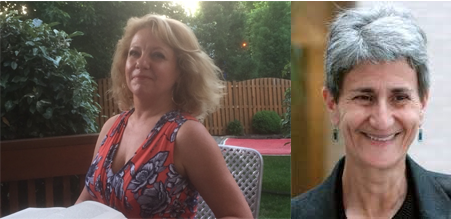September 6, 2017
This is the second of a series in which I take questions from Shari Lawrence Pfleeger on the poetry writing process.
Shari: How much should a poet reveal of herself and her life experience? Should the poems be universal, or is it okay to describe a very particular experience or feeling, regardless of whether the reader will understand it?
This is one of those questions that has changed for me as I grow into my writing life. Ten years ago, say, I would have talked about the two poles of the universal and the personal and how good poetry interweaves both. But the more I read, and write, and live my life in this world, the less I believe in any clear demarcation that separates the personal from any other kind of writing.
For one thing, it seems to me that there are very few human experiences that are utterly sui generis. You don’t have to have killed a spouse to understand Othello’s jealousy; you don’t have to have had a psychological breakdown to understand the pain in much of Anne Sexton’s early poetry. If the only thing at stake in a given poem is the personal experience itself, that may not be enough to make a compelling poem. But the poet may have to write to and through that experience to find what else is at stake in this particular content.
Also, how many experiences have only one dimension, or one level? I believe that at least two streams have to be running through or feeding a poem for it to reach its reader, but the way those come together can be magically unpredictable. Those different streams can be thematic or imagistic or structural or musical, but a one-idea poem is like a one-idea song – boring, repetitive, insular. Perhaps the best way to illustrate what I mean is through an example from my own work.
In my second poetry collection, Orpheus in the Park, I was exploring ancient myths for contemporary resonances. One of the myths I thought a lot about was the story of Hephaestus being tossed off of Olympus by either his father, Zeus, or his mother, Hera – as with so many myths, there are several versions – in one of the many stories involving their tumultuous marriage. The story had a personal dimension for me. A man I had known and loved for many years had been abandoned by his mother to his abusive father when he was only 15 years old. The man I knew became, like Hephaestus, a very fine artist, in part, it seemed to me, as a way to work through or with his pain.
But the poem quickly grew beyond that personal impetus to write it. As I was working on it, there was an item of national news that many may remember: A woman named Susan Smith claimed that she and her two sons had been carjacked and kidnapped, and that the kidnapper, a black man, killed her kids. When it came to light that she had made up the story, and killed the boys herself, I began to think more about Hera’s state of mind and heart: What would drive a mother to try to kill her own child? And so that became another layer of the poem, as did imagining the act itself. Universal, personal – the lines became blurred very quickly.
Here is the finished poem, as it appeared in the collection:
Hephaestus and Hera
How could she abandon the boy who only asked
that she protect him from his father? How could
the mother throw up her hands, cast out
the child she’d made to help her in her loneliness —
for already her husband wanders, ignores
the plaintive tone of her voice, turns the sounds
that not so long ago had won his heart
against her as he heads for the door. She covers
her swollen eyes with layers of make-up. And now
she looks at the boy she might have loved
and sees only herself, what she has become — pathetic,
miserable, a devoted wife turned to tricks beneath
any courtesan. For what is a child, after all,
but a string that attaches mother to father? How could she
believe she could make something perfect
all of her own? In the dark she leads him outside,
walks, holding his hand, to the edge of the cliff,
fakes one step as if into the air, and then, when
he follows, lets go of his hand. As she returns
to her room, she covers her ears from his cries. And he
uncoils his body from the crumple of his fall, touches
his injured foot, and stares up at the place from which
his mother’s face still fades between the stars.
There are losses we cannot allow ourselves to know.
For now, he begins to work a fallen branch into the shape
of a splint for his foot. Then he changes his mind,
and begins to make something called art.
“Hephaestus and Hera,” from Orpheus in the Park, © Rose Solari 2005.

Leave a Reply